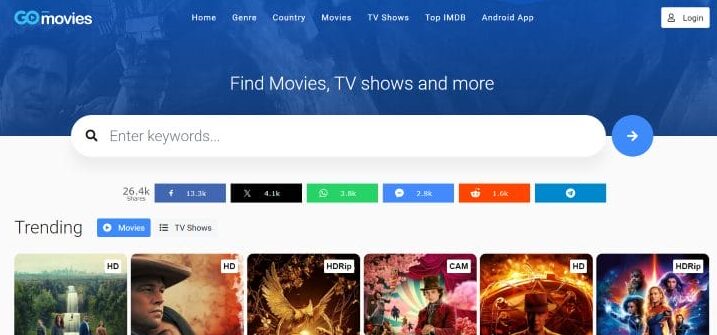Exploring the Advantages of Piano Lessons for the Mind and Soul
Introduction to the Mental and Emotional Rewards of Playing the Piano
Interacting with a piano’s black and white keys doesn’t just create music—it can unlock doors to a heightened sense of mental acuity and emotional depth. Whether pursued through a local instructor or an online piano teacher, piano lessons enrich lives beyond the audible harmonies, nourishing the brain and soothing the heart. Beyond merely augmenting one’s musical repertoire, they enhance neuroplasticity, the brain’s ability to form and reorganize synaptic connections, particularly in response to learning or experience.
Cognitive benefits such as improved memory retention, increased coordination, and a heightened sense of timing are just the prelude to the many advantages one gains when engaging in this musical practice. Adding emotion to the mix, playing piano can be akin to emotional storytelling, allowing for self-expression that transcends words and offering a canvas for the painterly strokes of our inner feelings.
The Role of Piano Education in Enhancing Creativity and Problem-Solving Skills
The discipline of mastering piano not only hones one’s artistic talents but also invigorates the intellect, fostering intrepid creativity and acute problem-solving. This dual development is integral, providing a well-rounded cognitive experience. Music is filled with nuances and subtle inflections that demand sophisticated interpretation, calling upon one’s creative faculties to transcend standard learning and delve into more innovative realms of thinking.
For the pianist, each piece of music is a new landscape of challenges, a fresh puzzle that beckons a unique mixture of analytical thinking and inventive insight. These intricate processes nurture an agile mind, enabling musicians to transfer these acquired skills to other aspects of their lives, piloting through life’s intricate challenges with the grace of a well-practiced hand gliding across piano keys.
Structuring a Piano Learning Journey: Tips and Strategies
To undertake the grand concerto that is piano learning is to chart a path filled with both challenge and reward. Setting out on this path calls for a structured approach that begins with clear, attainable objectives. In piano learning, success is measured by the willingness to remain steadfast in practice and growth. Whether the guidance comes from in-person instruction or through the personalized touch of an online piano teacher such as Forbes Music Company, the trajectory of one’s musical journey can be significantly affected by the quality of teaching and the consistency with which practice is approached.
The harmonious blend of finding one’s rhythm in practice routines and the enriching tutelage of a skilled instructor lays the foundation for a truly dynamic learning experience. A well-paced piano education nurtures the learner’s development, ensuring that with each successive lesson, they’re not just playing notes but truly making music that resonates with the soul.
Stress Relief and Emotional Expression: The Piano as a Sanctuary
The serenity of a softly played piano piece has long been known to soothe the agitations of the soul. For the player, this experience is amplified; engaging with music as a creator rather than a mere consumer is deeply therapeutic.
The piano’s capacity for emotional conveyance is unparalleled, and learning to play can be as much about learning to communicate one’s emotive states as it is about acquiring a set of mechanical skills. This blend makes piano playing a powerful ally in combating stress and anxiety, providing a focused task that engages the mind and heart.
The Therapeutic Melodies: Piano Playing as a Meditative Practice
Playing the piano can be a serene refuge, a practice that parallels the calming effects of meditation. The required concentration and repetitive motions grant musicians a sense of peace and centering. This mindfulness imbued within piano practice can spill into everyday life, offering an approach to calmness in the face of life’s tumultuous nature and providing a sanctuary of solace amidst the world’s chaos. Whether through the disciplined scales or the emotive improvisation, pianists often find themselves lost in a state of flow, a psychological space where time seems to stand still and the mind fully engages in the activity.
Bridging Generations and Cultures: Piano’s Universal Language
The resonant tones of the piano carry far more than sound—they convey sentiments and stories that unite people across continents and epochs. This universal language of music can be understood regardless of background, making the piano an instrument of global dialogue. The shared experience of music draws together individuals from varying walks of life, facilitating connections that may otherwise have remained unforged.
The piano is a brand ambassador in many ways, lacing different cultures with a common thread and allowing unlikely encounters to flourish into harmonious relationships. The community that arises from gatherings around the piano is a testament to its capacity to create melodies and forge enduring bonds of friendship and solidarity among those who find joy in its keys.
Maintaining Motivation and Consistency in Practice
The melody of piano learning requires a tune of perseverance and commitment to practice. While the initial excitement of beginning piano lessons can be electrifying, maintaining that energy through the routine demands of drills and scales can prove challenging. The secret lies in setting incremental and realistic goals, which provide milestones that keep the learner engaged and motivated.
Modifying musical talent is akin to tending a garden; regular care and dedication yield the most vibrant bloom. Engaging with a community of fellow pianists or seeking inspiration from iconic performances can rekindle one’s passion and dedication to the craft, just as sunlight and water encourage growth in nature.
Access to Piano Lessons: From In-Person Classes to Digital Platforms
In today’s digital era, the journey of learning piano is no longer confined to traditional settings. The rise of virtual classrooms and online resources has shattered geographical barriers, democratizing access to high-quality music education. This proliferation of digital piano learning platforms means that whether one resides in a bustling city or a remote countryside, the pursuit of piano mastery remains within reach. Online options provide budding musicians the flexibility to learn at their own pace, in the comfort of their own home or studio settings, and under the guidance of seasoned professionals worldwide.
This plethora of accessible learning paths ensures that regardless of one’s circumstances or location, the enriching experience of piano education is but a few keystrokes away. The digital landscape of music lessons has become a beacon, illuminating pathways for all who wish to explore the transformative power of piano learning.
Conclusion: The Enduring Chords of Life-Long Piano Playing
The compelling narrative of life may twist and turn, but the charm and benefits of piano playing persist, unwavering in their appeal. Whether embarked upon for cognitive enhancement, as a means of stress relief, or purely for the love of music, the pursuit of piano lessons weaves a rich tapestry into the fabric of our lives. Nurturing this craft presents a symphony of benefits that resonate through every chapter of one’s story, offering a source of joy, fulfillment, and infinite discovery.







